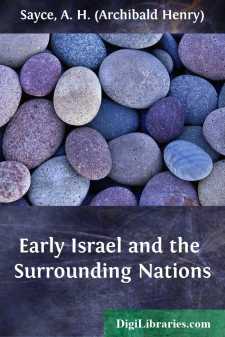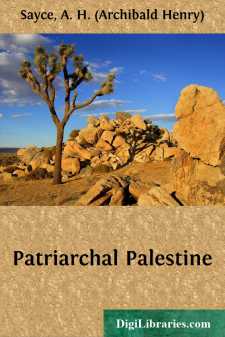Categories
- Antiques & Collectibles 13
- Architecture 36
- Art 48
- Bibles 22
- Biography & Autobiography 815
- Body, Mind & Spirit 144
- Business & Economics 28
- Children's Books 18
- Children's Fiction 14
- Computers 4
- Cooking 94
- Crafts & Hobbies 4
- Drama 346
- Education 58
- Family & Relationships 59
- Fiction 11829
- Games 19
- Gardening 17
- Health & Fitness 34
- History 1378
- House & Home 1
- Humor 147
- Juvenile Fiction 1873
- Juvenile Nonfiction 202
- Language Arts & Disciplines 89
- Law 16
- Literary Collections 686
- Literary Criticism 179
- Mathematics 13
- Medical 41
- Music 40
- Nature 179
- Non-Classifiable 1768
- Performing Arts 7
- Periodicals 1453
- Philosophy 65
- Photography 2
- Poetry 896
- Political Science 203
- Psychology 44
- Reference 154
- Religion 515
- Science 126
- Self-Help 85
- Social Science 82
- Sports & Recreation 34
- Study Aids 3
- Technology & Engineering 59
- Transportation 23
- Travel 463
- True Crime 29
A. H. (Archibald Henry) Sayce
Archibald Henry Sayce (1845–1933) was a prominent British Assyriologist and linguist, known for his work in the fields of ancient Near Eastern languages and history. He made significant contributions to the study of cuneiform and was one of the earliest scholars to support the decipherment of Hittite inscriptions. Sayce authored numerous works, including "The Principles of Comparative Philology" and "Assyria: Its Princes, Priests, and People." His scholarship helped advance the understanding of early Mesopotamian and Anatolian cultures.
Author's Books:
Sort by:
INTRODUCTION One of the first facts which strike the traveller in Palestine is the smallness of a country which has nevertheless occupied so large a space in the history of civilised mankind. It is scarcely larger than an English county, and a considerable portion of it is occupied by rocky mountains and barren defiles where cultivation is impossible. Its population could never have been great, and...
more...
CHAPTER I THE LAND Patriarchal Palestine! There are some who would tell us that the very name is a misnomer. Have we not been assured by the German critics and their English disciples that there were no patriarchs and no Patriarchal Age? And yet, the critics notwithstanding, the Patriarchal Age has actually existed. While criticism, so-called, has been busy in demolishing the records of the Pentateuch,...
more...



